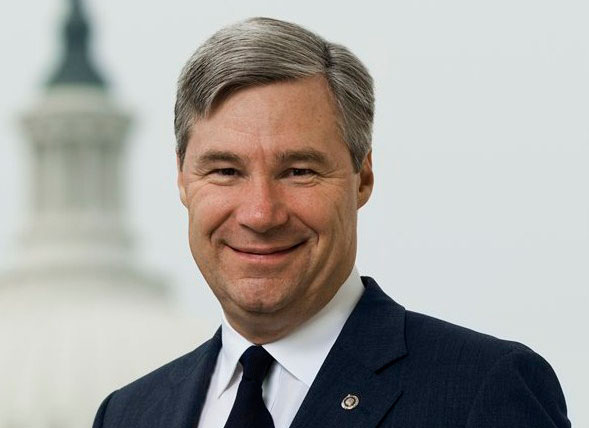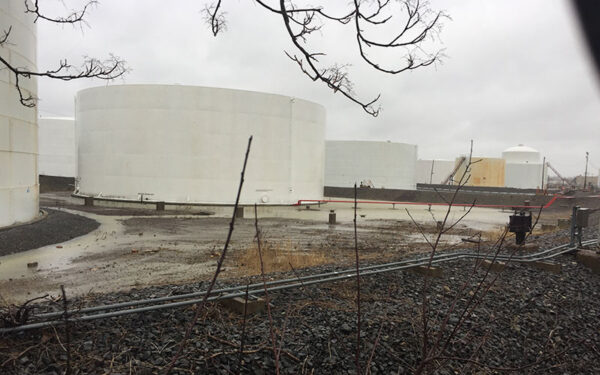
A forceful voice for action on climate change, Rhode Island’s junior senator delivers a weekly “Time to Wake Up Speech” on the Senate floor to compel his colleagues to address the growing climate crisis. In June, he introduced his second carbon tax bill aimed at lowering emissions.
You’ve given more than 100 “Time to Wake Up” speeches. What prompted you to start giving these speeches and what keeps you going?
I give these speeches because climate change is real, and because the cost of Congress’ inaction is too high for our Ocean State. I keep going because I am confident that we can break through the barricade of special interests that have been blocking action on this issue, and that doing so will strengthen both our economy and our democracy.
What worries you most about the impact climate change is having in Rhode Island and New England?
In Rhode Island, our way of life is tied to the ocean, where the effects of climate change are the most evident. Sea level at the Newport Tide gauge is up nearly 10 inches since the 1930s. Recent storms have flooded our water treatment facilities and washed beachfront homes off their foundations. Winter water tempera- tures in Narragansett Bay are up three to four degrees Fahrenheit since the 1960s. Our fishermen are catching species that were never seen in their fathers’ and grandfathers’ nets. As one fisherman told me, “It’s getting weird out there.” These changes are already taking their toll on our communities and our economy.
What is it going to take to get Congress to take meaningful action on climate change?
With the big polluters pouring unlimited amounts of money into our elections (thanks to Citizens United), there has been little incentive in Congress to upset the status quo. But President Obama’s carbon pollution standards for new and existing power plants have changed the calculus for the fossil fuel companies: They no longer get to pollute for free. The costs of complying with those new standards may make them more open to legislative alternatives, like an economy-wide carbon fee. And when the polluters’ calculus begins to change, the political calculus here in Congress changes, too.
What role do you see environmental advocacy organizations like Conservation Law Foundation playing in moving forward solutions to climate change?
By bringing important legal cases, organizing stakeholders, and holding decision makers accountable, Conservation Law Foundation and other advocacy groups help Americans understand the stakes of climate change and find powerful ways to take action.
What do you love most about Rhode Island and New England?
The things I love most about Rhode Island and New England are precisely the things that make me so passionate about climate change: our oceans and coasts. I love days at the beach, sailing on the bay, and fresh seafood hauled in by our local fishermen. These things make our state truly special, and they are worth fighting for as climate change continues to threaten them.



